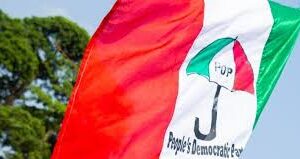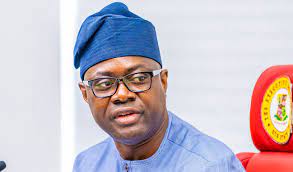The mode of primary to be adopted by political parties ahead of the 2023 elections has pitched the All Progressives Congress (APC)-dominated federal legislature and governors elected on the party’s platform.
While the National Assembly approved the direct mode of primary for the emergence of candidates from their political parties, the APC governors differed.
The seeming disagreement led to a tripartite meeting of Vice President Yemi Osinbajo, the governors and the NASS leadership with Osinbajo presiding.
Although a stalemate was recorded, the Presidency finally announced that the APC stakeholders had settled for the direct primary.
But the Peoples Democratic Party (PDP) is crying foul, saying no one has any right to impose the mode of primaries as it is the inalienable right of the parties concerned.
All the decisions, intrigues, disagreement and the final reconciliation happened late Monday night and Tuesday in Abuja.
NASS
In a major resolution Tuesday, the lawmakers okayed the direct primary.
They also, as contained in clause 52 of the 2010 Electoral Act (Amendment) Bill 2021 earlier recommended by the Senate, gave the Independent National Electoral Commission ( INEC) usage of technological/ electronic devices in the conduct of elections and transmission of results.
Concurrence to this effect by both chambers of the National Assembly followed adoption of report of Conference Committees set up by the Senate and the House of Representatives July this year by the Senate in plenary.
A total of 21 clauses as presented by the leader of the Senate Committee on Harmonisation, Senator Yahaya Abdullahi (APC Kebbi North), were harmonised by either adopting the one earlier adopted by the Senate or House of Representatives.
Presenting the report, Abdullahi said: “The objective of the conference Committee was a reconciliation of the differences in a few clauses of the bill as passed by the Senate and the House of Representatives.
“The clauses are 1, 5, 6, 15, 16, 17, 23, 24, 31, 36, 43, 49, 50, 52, 63, 76, 87, 97, 98, 117 and 135.”
Out of the 21 clauses, 52 and 87 are the most controversial being the ones dealing with conduct of elections, transmission of results and mode of primaries for political parties.
When the Senate passed the Bill July, it made electronic transmission of election results by INEC to be subjected to approval of the Nigerian Communications Commission (NCC) as regards coverage and effectiveness of national network, the House passed a clause that says ” electronic transmission of election results by INEC can be done where and when practicable.”
But the finally adopted provision of the clause by both chambers based on the conference committee report, is the amended one carried out by the Senate which says the “mode of Conduct of elections and transmission of results are to be decided by INEC.”
For clause 87 which deals with mode of primary elections for political parties, the amended version of the Senate which compelled all political parties to use direct primaries was adopted.
The clause reads: “A political party seeking to nominate candidates for elections under this bill shall hold direct primaries for aspirants to all elective positions, which shall be monitored by the Commission (INEC).”
Out of the 21 clauses that were harmonised, 14 were adopted from the earlier ones passed by the Senate and the remaining 7 clauses were adopted from earlier ones passed by the House.
Speaking after the presentation of the report to the Senate, the Senate committee chairman, Senator Abdullahi said: “This bill, a process that started from the 7th Assembly through to the 8th National Assembly, has now been completed by the 9th National Assembly.”
The committee members include Senators Kabiru Gaya, Danjuma Goje, Sani Musa, Mathew Urhoghide, Ajibola Basiru and Uche Ekwunife.
On the House committee are Hon Akeem Adeyemi as Chairman, while Aisha Dukku, James Faleke, Blessing Onuh, Ahmed Kalambaina, Chris Azubogu and Hon Unyime Idem serve as members.
APC govs
But prior to the final reconciliation by Vice President Osinbajo on the matter, the APC governors had rejected the choice of direct primary.
The governors under the Progressive Governors Forum (PGF) declared that adopting direct primary by political parties would overstretch the Independent National Electoral Commission (INEC).
Speaking with newsmen Monday night after a closed- door meeting of the PGF, its chairman, Governor Abubakar Bagudu of Kebbi state said the decision by INEC to make it mandatory for political parties to elect their candidates for elective positions through direct primaries could be undemocratic.
He said the meeting discussed problems associated with direct primaries, adding there were concerns that political parties are voluntary organisations.
The governor said the concern of the governors was that if you limit the abilities of parties to choose options that they so desired, “it may be arguably undemocratic.”
Bagudu added that this was because nothing stops one party from adopting one or the other.
The PGF chairman said the meeting, among other things, reviewed development in the polity and in the APC states.
He added that the meeting also discussed the membership registration and the congresses that were conducted.
He lauded the Mai Mala Buni-led Caretaker and Extra-ordinary Convention Planning Committee (CECPC) for the success of the congresses.
“In particular, the governors were appreciative of the CECPC because of its respect for President Muhammadu Buhari’s expectations that they should support the party bottom up. I think that had been achieved in the last exercise.
“Equally, we reviewed the congresses and advised on how we think it should strengthen our democracy, “ he said.
On the party’s national convention and related issues, he said: “I believe that soon, the party will inaugurate all the state executives, and then, some of the outstanding congresses that are to take place in Zamfara and Oyo states and three other states will be concluded.
“Then we are on our way to setting a date for the National Convention.”
Present at the meeting were governors of Nasarawa, Kano, Kebbi, Ekiti, Plateau, Yobe, Kogi, Ebonyi, Gombe and Osun states, while Lagos and Ondo state governors were represented by their deputies.
Follow-up meeting
And as a follow-up to Monday meeting, an enlarged tripartite committee set up by President Buhari to resolve disagreements within the APC Tuesday met and initially failed to agree on the use of direct primary.
The meeting, held at the State House Conference Centre, was presided over by Vice President Osinbajo.
The tripartite committee, made up of the executive, the legislature and the officials of the APC, failed to convince members of the National Assembly on the need to provide alternative for the direct primaries option.
Former governor of Kebbi state and a serving lawmaker, Senator Adamu Aleiro, told State House correspondents after the meeting that the lawmakers believed direct primary remained the way to go because it has been working for the electorate.
On the APC governors’ call that the lawmakers should dump the provision, Aliero said, “on this, we cannot not be coerced to change our position.”
Also speaking after the meeting, Kogi state Governor Yahaya Bello said the fear of the executive arm of government was the lack of alternative in the Electoral Bill if the direct primary fails.
He said the final decision on the matter rests with President Muhammadu Buhari, stressing that the resident would decide whether to assent to the Electoral Bill as passed by lawmakers or return it to the National Assembly.
The governor said if the president decides to return the bill, it would not be the first time, adding that if he assents to the bill, the governors would have no choice but to work for its implementation.
“This is the Tripartite Committee set up by the President being the executive, the legislature and our great party to ensure that every topical issue that affects the people of this country at various arms of government is well discussed by the party and taken good decision in the best interest of everybody,” he said.
On whether the governors are comfortable with the decision of the lawmakers, he said: “I don’t think any governor or anybody whatsoever as far as APC is concerned is afraid or have any reservations as far as our participation is concerned.
“The only concern is the implication of having only one option. In case an option fails what happened? If for instance now, INEC set a date for election and you can’t shift, what do you do? And if circumstance beyond control arose what do we do?”
On if the decision to insert direct primary in the Electoral Bill can still be changed, he stated: “In their own wisdom, nobody’s going to meddle into affairs of the legislature. So, whatever decision they have taken, if it is in the interest of the people so be it. If in their own wisdom, that is how they want it, so, be it.”
Presidency reconciles
Reconciling all the parties however, the Presidency directed all APC stakeholders to key in and asked aspirants to reach out to the people for support.
The position was made known at the end of the meeting in Abuja by Special Adviser to the President, Senator Babafemi Ojudu.
A statement by the presidential aide said: “The resolution tonight of tripartite meeting is victory for party internal democracy. Tension was high. Emotions predominated but the Vice President was able to play the role of a great conciliator.
“While the younger elements in the House of Representatives were vehement and uncompromising in the expression of their preference, the Senators were calm but resolute.
The VP laid out the reasons for calling the meeting and allowed the parties to ventilate
“It was a victory for the party, the governors and the legislators. We should commend the party leaders for reaching an agreement in a democratic manner.
“I think the outcome of today’s meeting is victory for internal democracy in APC. You recall that, in his sagely wisdom, President Muhammadu Buhari had set up a tripartite mechanism to interface whenever conflicts of this nature arose between the party, the body of governors and members of the National Assembly.
“Acting on the President’s mandate, Vice President Yemi Osinbajo called today’s meeting to allow for all parties to ventilate their voices in a no-holds-barred manner. It was a family meeting.
“At the end, a common ground was reached, direct primaries was upheld and aspirants under our party can now go back to the people and seek endorsement rather than giving a few delegates the power to decide for all.”
PDP
Notwithstanding the truce reached by the APC stakeholders, the opposition PDP insisted no party has right to impose its processes on another.
In a statement by its National Publicity Secretary, Kola Ologbondiyan, Tuesday, the PDP said it “received the news of the passage of the harmonized electoral act amendment bill, which among other things, provided for direct primaries for nomination of candidates for elections by political parties.”
The opposition party held that “it is the inalienable right of each political party, within the context of our constitutional democracy, to decide its form of internal democratic practices including the processes of nominating its candidates for elections at any level.
“The PDP also believes that no political party should force its own processes on any other political party as the direct primaries amendment, a practice of the All Progressives Congress (APC), sought to achieve.
“Having stated this, the PDP shall, within the next 48 hours, make its final decision in respect of this amendment known.”




